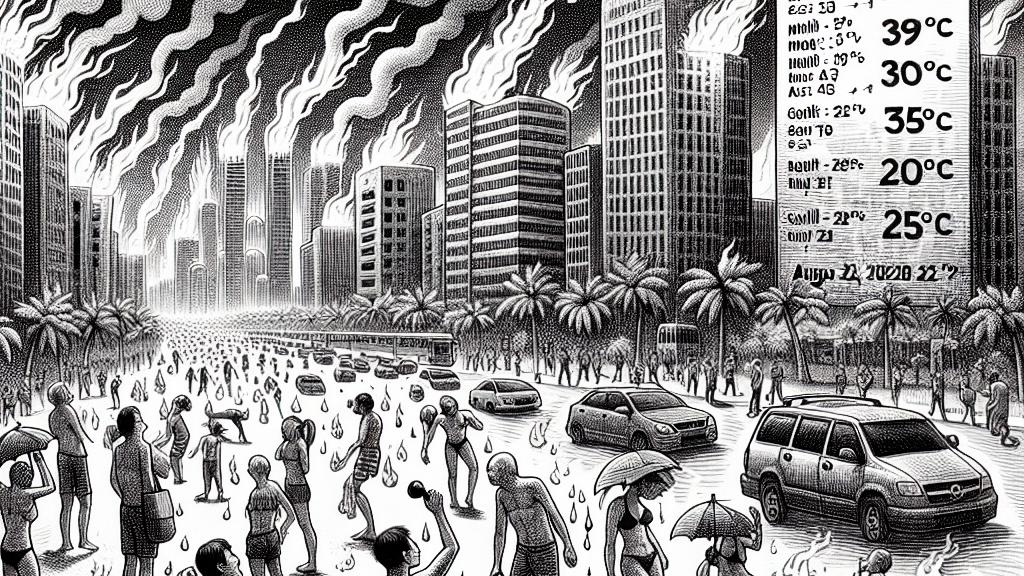South Korea Sizzles: Heatwave Drama Unfolds Until August 22!
Overview
- Severe heatwave gripping South Korea forecasted to last until August 22.
- Seoul endures unprecedented stretch of 22 consecutive tropical nights.
- Health officials issue urgent warnings as temperatures soar to alarming levels.

Current Heatwave Overview
South Korea is currently facing an intense heatwave, primarily affecting major urban areas like Seoul, with predictions from the Korea Meteorological Administration (KMA) indicating that this extreme weather will persist until at least August 22, 2024. Morning lows are expected to reach around 27°C, while daytime highs could climb between 30°C and 34°C. The prolonged occurrence of tropical nights—nights where temperatures do not fall below 25°C—has now extended for 22 consecutive days. This drastic shift in weather patterns is raising significant concerns regarding public health, especially for vulnerable populations, as uncomfortable conditions can easily lead to heat-related illnesses.
Historical Records and Societal Impact
This current heatwave is historically significant, marking one of the longest recorded stretches of tropical nights in Seoul since meteorological records began in 1907. The heat has stretched beyond typical summer temperatures, with daily highs frequently surpassing 35°C. The consequences of this extreme heat are dire; emergency services report increased hospitalizations due to heat exposure, highlighting the operational strain on health facilities. The uptick in heat-related casualties further intensifies the urgency for public initiatives aimed at protecting citizens' health and safety during this severe weather crisis, necessitating a comprehensive response from both health authorities and local governments.
Government Response and Community Initiatives
In light of the ongoing heat emergency, the South Korean government has classified the situation as a 'special disaster.' Authorities are stepping up efforts to safeguard vulnerable groups, organizing campaigns to encourage community members to check on elderly neighbors and family members. Initiatives include establishing air-conditioned cooling centers and distributing hydration resources to ensure that everyone has access to necessary relief. Local governments are also implementing strategies to maximize outreach and education about recognizing heat-related symptoms and the importance of staying hydrated. This community-focused effort underscores a collective commitment to mitigating the harmful effects of extreme heat, demonstrating resilience in the face of climate challenges.

Loading...